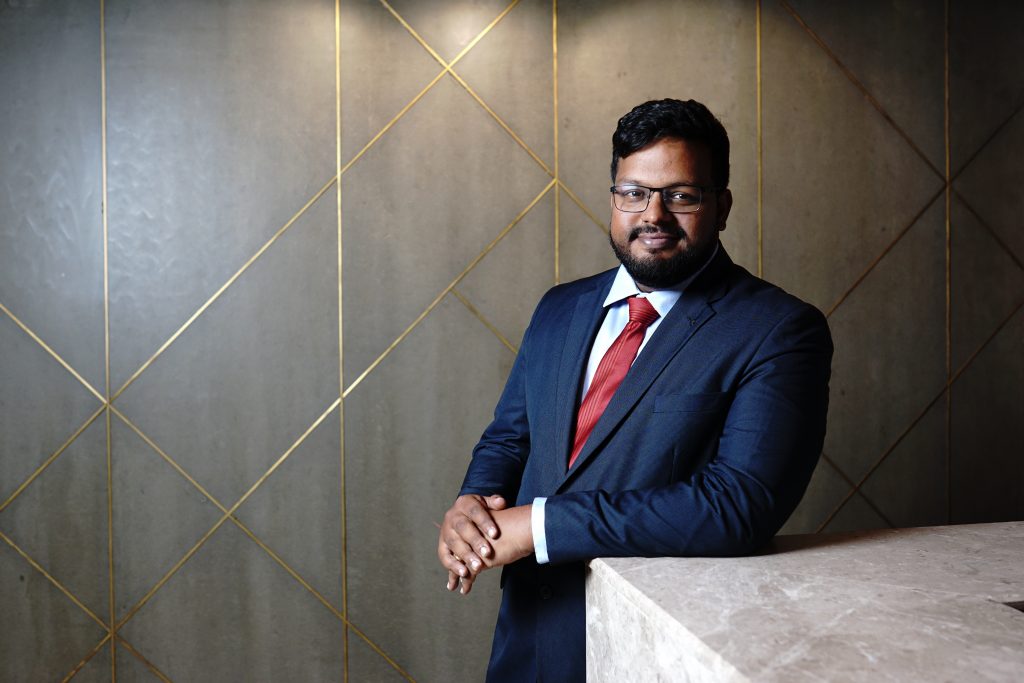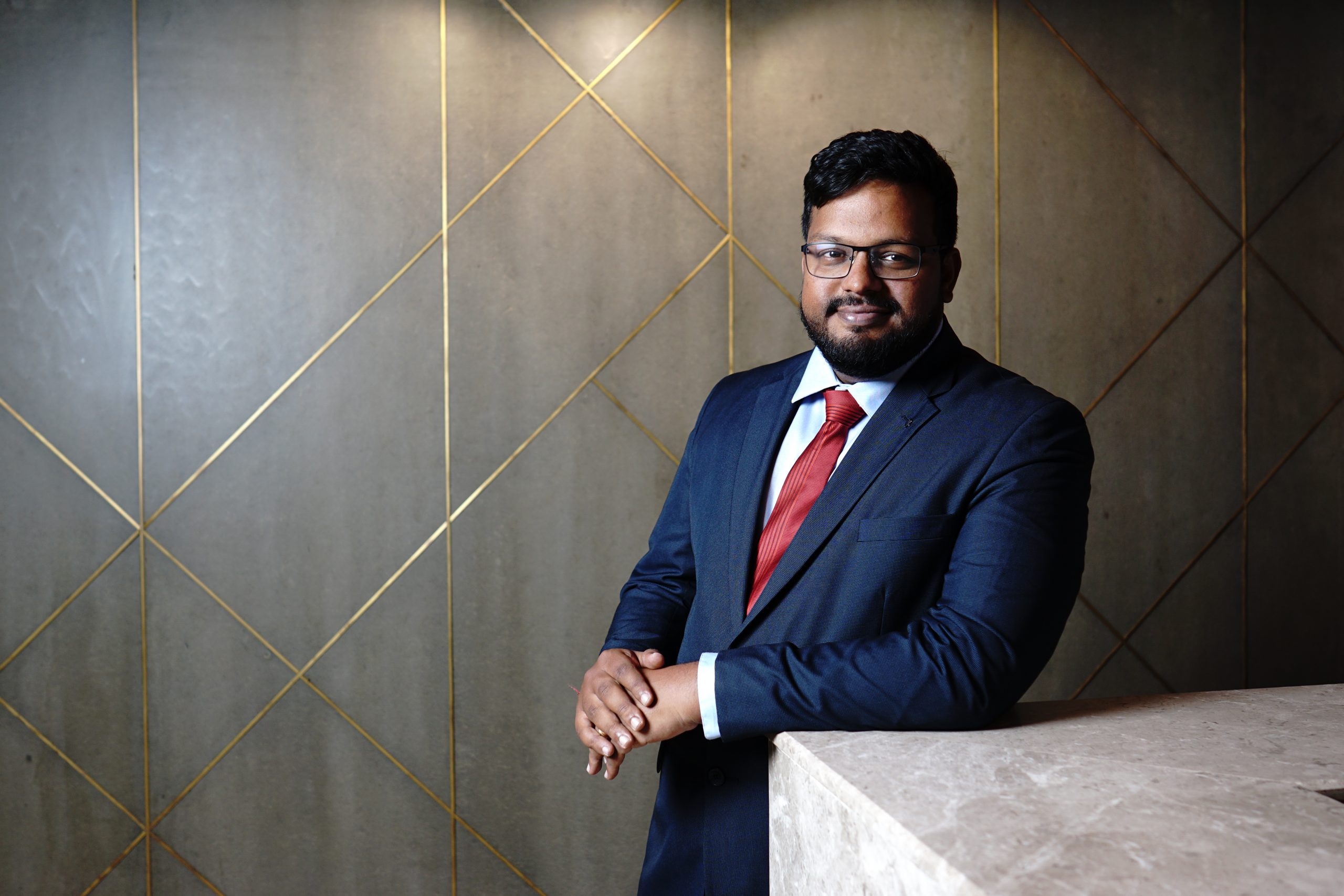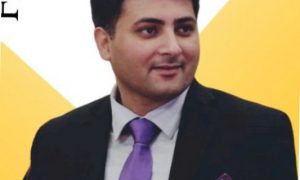This Interview has been published by Pragya Chandni and The SuperLawyer Team

Can you walk us through your journey from studying law at Dr. Ram Manohar Lohiya National Law University to becoming a Partner at IndusLaw in Bangalore? What inspired you to pursue a career in law, especially focusing on corporate and commercial matters?
I did my schooling in Chennai, loved writing, public speaking and was enthusiastic about problem solving. Around the time I was contemplating my career choice, the national law schools in India had decided to come together to conduct the common law proficiency test (CLAT), which looked like a good opportunity to explore.
Studying law at RMLNLU, Lucknow was a beautiful experience. I had a plethora of opportunities at my disposal, ranging from moot courts, parliamentary debates, MUNs to paper publications/presentations. Having said that, while law schools have a well thought out curriculum and they do help initiate efforts on building skills, they don’t prepare you for the fine print of any practice area and only just about scratch the surface in terms of concepts. This results in a significant void between theory and practice. To make up for practical knowledge and exposure, I spent each of my vacations doing internships, largely in the cities of Chennai and Mumbai. Mid-way through law school, I started interning with law firms, dabbling across practice areas such as litigation, project finance, intellectual property and corporate/commercial matters. I was still however looking for a specific practice area of interest, though I had developed a focused interest towards contract law and by then, corporate laws had been introduced as a subject. Around this time, an opportunity came by to participate in a national corporate law moot court competition, and we ended up winning it. What I loved about that experience was how interesting, vast and ever-evolving corporate and commercial laws were. I thoroughly enjoyed researching, drafting, preparing arguments and advocating them for that problem statement. It gave me direction that this is something I could really immerse myself in. I shifted my focus thereafter to internships solely in corporate law practice.
From there on, it has been a voyage of dedicated and diligent learning across firms I’ve been a part of. Being a first generation lawyer, a lot of effort went into building my principles, knowledge and processes with focus on what I wanted to be and stand for as a professional. The initial years in practice went into establishing my fundamentals and processes which enabled me to deliver well thought out work products. Each deal that came by helped me build expertise on different sectors and issues around them. I’m a believer of self-assessment and feedback, used to approach my seniors on where I could improve after each deal. This helped me identified the chinks in my armoury and I worked consistently towards getting better at those. It has been a long yet fulfilling journey so far and I’m excited about what the future has in store for me.
You’ve had a diverse range of experiences across various law firms such as Phoenix Legal and HSB Partners. How did these experiences shape your understanding of legal practice, particularly in the realms of mergers & acquisitions, private equity, and venture capital?
Each firm I worked at contributed in a significant way to my growth and development as a lawyer. In the initial years, when I started out in Chennai post graduating from law school, I was lucky enough to be at the crossroads of the biggest overhaul of company law in Indian history. With the Companies Act, 2013 being introduced and to take effect from June 1, 2014, my first year in practice was almost entirely focused on interpretation of the new legislation and how it differed from the 1956 Act. These exercises were in fact driven by a plethora of queries from clients seeking advice on specific provisions of the 2013 Act. There were many engaging and interactive sessions with my seniors at the time to get a grasp of what we were dealing with, coupled with research drill downs, both in terms of interpretation of statutes and precedents in case laws. This helped me a great deal to get confident with my understanding of the legal practice involved in transactions and advisory. I had dealt with the 1956 Act in my internships. Hence, being able to deploy that understanding against the change in positions vis-à-vis the newly effective legislation in the 2013 Act gave me ample avenues to get better at shaping my understanding of the practice area. My stint in Mumbai was largely focused on mergers & acquisitions and venture capital. I got to do a lot of domestic and cross-border acquisitions and venture capital deals. It was a big learning curve for me which I embraced with all the efforts I could possibly put in. In your early years, observing your seniors negotiate on deals teaches you a lot, and over time, you tend to develop your own style of negotiating and handling multiple facets of the profession.
In any law firm, the work environment is dynamic, providing a diverse range of opportunities to learn from. With good mentors, exposure and diligence, one can dive deep into the requirements of a client and cater to its basis the demands of a given problem statement. From there on, it’s akin to polishing a precious stone, every bit of experience aggregates to fine tune a lawyer’s understanding and it only gets better with time. This, I believe, provides valuable insights and practice guidelines to develop oneself as a well reasoned and articulate legal professional capable of providing sound legal advice to clients. A couple of valuable lessons I’ve learnt over time with experiential learning are identifying client demands early on into a transaction and reflecting on them to deliver the desired results at every stage of the transaction. This varies based on the deal as well as from one client to another. For instance, a venture capital investment is akin to occupying a space in a newly built house while an acquisition is cleaning up and buying the entire house. What an investor is looking for from an investee company in an early stage venture capital investment differs vastly from what they are looking at in a late stage investment or what a buyer is looking to achieve from an acquisition. These differences range right from the level of detailing and lookback period involved in the diligence to the rights matrix to be negotiated for the relationship going forward. Negotiation is yet another skillset which requires constant learning and unlearning. With every deal, you take back something new from negotiations. Reassessment and reworking your approach to essentially figure out if your existing modus operandi could be better with the new learnings adds immense value in terms of reflecting on the outcomes of a deal.
Your work at IndusLaw involves advising on a multitude of transactions, including mergers and acquisitions, venture capital investments, and private equity deals. Could you share with us some of the most memorable or challenging transactions you’ve worked on and what lessons you’ve learned from them?
There are quite a few deals I’ve absolutely loved working on at IndusLaw. Some memorable transactions I’ve done here include a series of acquisitions which set up daily delivery and instant vending businesses of a leading entity in the food and groceries space. These acquisitions included a business transfer, an asset purchase and a share purchase acquisition, and each acquisition structure came with its own set of challenges. In addition, these acquisitions taught me a lot about integrating new business models into an already well-grounded and flourishing model and practical challenges in terms of doing that. One of those acquisitions also included a founder exit, which was my first experience of a co-captain leaving the ship. Another transaction recently was internalization of a leading quick commerce brand from Singapore to India as part of a larger acquisition transaction. We dove deep into the process which happens at Singapore, including by working closely with our counsel there. The timing had to be spot on, given this internalization would need to seamlessly flow into the larger goal of the internalized entity being acquired by a listed company in India. The learnings from this deal were invaluable and while we faced multiple challenges on a daily basis, solving for each of them gave me a strong understanding of the process and its possible pitfalls.
More recently, with the changing trends, I’ve been closely involved with startups in the fashion space and manufacturing of materials (deployable across multiple industries), in both cases, with emphasis on sustainable and eco-friendly models. Transactions I’ve worked on have taught me a lot, in addition to fine-tuning my skills as a lawyer. These learnings range from interpersonal skills, understanding and appreciating the nuances of each product ecosystem (and the innovations that come with it) in this dynamic startup environment to understanding perspectives of founders who invested a lifetime of dedication, commitment and diligence to building successful businesses, and eventually decided to call it a day and sell.
Your expertise spans across sectors like e-commerce, healthcare, logistics, and media & entertainment. How do you stay updated with the legal developments and industry trends in such diverse areas, and how does this knowledge contribute to your advisory role?
In a way, this was one of the main reasons I moved from Mumbai to Bengaluru. To get involved in the exciting startup ecosystem, in my area of competence. For A Long time, each sector presented itself in deals, and I loved working on each of those sectors.
In terms of staying updated, early on in my career, I used to visit the websites of regulators such as RBI, MCA and SEBI to look for recent updates. Eventually, I figured out some useful hacks, which still serve me well to date. One of these was setting up Google alerts in my email driven by keywords. I placed a few alerts on keywords which most mattered to me, such as ‘venture capital’, ‘ministry of corporate affairs’, ‘reserve bank of india’, ‘foreign direct investment’, to hit my inbox at a time I could catch up on updates. So everyday, I get a collection of articles sourced from the web in my mailbox, to catch up on. In addition to this, I also spend some time on a weekly basis to stay updated by reading newsletters/articles by IndusLaw and other law firms (not just in my practice area but others as well), articles on legal and professional network platforms, publications by legal databases/journals, funding trends (generally through accessing periodic analysis reports released by various investors), sectors which get more traction than others and so on. Updating oneself regularly is of paramount importance in the legal services industry, and it helps a lot in staying honest and relevant with the trends. This has helped me in striking conversations with clients about what’s happening and could be expected in their sectors, the sector’s outlook going forward and so on. Another efficient way to stay updated is also to write articles. Along with our team at IndusLaw, I endeavour to write articles regularly and we put out a lot of content expressing our thoughts on a plethora of subjects. The firm also chalks out and conducts training sessions on specific subjects in each practice area, which gives me an overview in terms of thinking through and updating my understanding on those and our views on contentious issues.
In addition to your transactional work, you’ve also been involved in drafting legal opinions, conducting due diligence, and providing compliance advice. How do you balance the demands of these different aspects of legal practice, and what advice would you give to young lawyers looking to excel in these areas?
Every deal is an opportunity to learn something new and nail the brief. First up, having a positive outlook on the profession is vital. Yes, the demands are rigorous and in a given day, you may be switching between multiple matters ranging from transactions to opinions to conducting due diligence to providing compliance advice. The ability to switch off from one matter to another is quite critical (and a skill in itself) in the profession and that can happen seamlessly only with a well grounded and firm understanding of each given matter. Preparation and planning prior to commencement of the transaction, establishing a workflow process and regular review sessions with the team are some of the other practices which help me navigate through multiple matters at the same time.
I still have a long way to go in this profession, so I wouldn’t call this advice, rather a rational thought to ponder for young lawyers. Each matter is unique, treat each one of them with the attention to detail it deserves. A lawyer cannot convince a client unless they are convinced themselves. Deliberate, research and reflect on your own thought process and solutions which result from it until you’re convinced that it’s the way forward.
There is a quote by the former secretary of state of the United States, Colin Powell, in his Thirteen Rules of Leadership – It ain’t as bad as you think! It will look better in the morning. Couldn’t ring truer in terms of being stuck in a thought loop on a problem statement. Anything complex is only an aggregation of simpler problems stacked over one another. So if you’re facing a complex problem statement, break it down into simpler ones and solve for each of them.
Your publications reflect a deep understanding of complex legal issues, including trending topics such as GIFT City, relocation of supply chains to India and ESOPs/stock appreciation rights. Could you tell us about your approach to legal research and writing, and how it helps you in your day-to-day work?
Research forms the fundamental base of any understanding. The more your research, the more you achieve in terms of clarity of conceptual understanding of a subject matter. I’m generally on the lookout to write articles on subjects which my practice area requires clarity on. This invariably helps me get better at my understanding of the subject as well. Once the topic is identified, conducting comprehensive research (including perspectives by various stakeholders) helps me to chalk out a framework for the article. From there on, I go into analysing precedents, statutory provisions and commentaries available on the subject. Once the above checkpoints are complete, the writing requires further deliberation (and a fair bit of drafting and rehashing) in terms of achieving coherence and flow in the article.
Legal research and writing has been a part of my life ever since law school. Establishing a process (as explained above) and following it religiously helps a lot, not only in terms of legal writing, but also to deal with multiple transactions at any given point of time.
As someone who has been deeply involved in the startup ecosystem, what are some common legal pitfalls or challenges that startups often face, and how do you guide your clients through these obstacles?
Some of the common challenges which I’ve seen early stage startups face are keeping up with compliances, which sometimes includes obtaining necessary licenses and permits. This is understandable as startups invest a lot of their energies into solving the problem which is the genesis of their creation. Given the gamut of laws which apply to a company in India, it is quite possible to miss getting some of that paperwork done. Another challenge I would say is standardization of contracts. In early stages, there may be quite a few commercial contracts with multiple stakeholders in the startup ecosystem, such as suppliers, vendors, service providers etc., whereunder a startup may have signed up to onerous terms, such as say uncapped indemnity or not adequately covering for risks which may arise from the counterparty’s role in a contract.
For any such pitfalls, I prefer to explain the problem upfront to a client and then proceed to providing options which may be considered to resolve such issues, ranging from ones which could provide a quick fix for the time being to more robust and elegant long term solutions. Of course, there is gradation of the risk involved as well which goes into this process, so the client is aware which issue (and options available to fix it) needs their immediate attention as against the ones which could be addressed a little later in time.
Transitioning from being a law student to a successful legal professional can be challenging. What advice would you give to law students or young lawyers who aspire to follow a similar career path in corporate law and specialize in areas like mergers & acquisitions, venture capital, and private equity?
Having interacted with quite a few students looking to enter the practice area, I would encourage young lawyers to explore their interests in law school and understand what their possible options could be. Thereafter, they should shortlist their areas of interest over the others, understand further on what each such shortlisted practice area demands. This can be easily achieved through their peer network of seniors who may be involved in those practice areas, and with the information publicly available. Understanding the rigours of the profession and what is required from their end in their formative years will go a long way in setting their expectations straight.
In addition to this, if young aspirants are interested in deal making, they need to do more than just understanding and reflecting the law in practice. Making a conscious effort to develop their commercial knowledge and understanding practical challenges and aspects which come along with deal making (including in terms of execution and implementation of structures) would give them a competitive edge by getting familiar with the challenges associated with deal making and solving for them. Such proactive steps would help them establish the contours of the profession and their capabilities quite early on.
Get in touch with Anantha Krishnan-
























